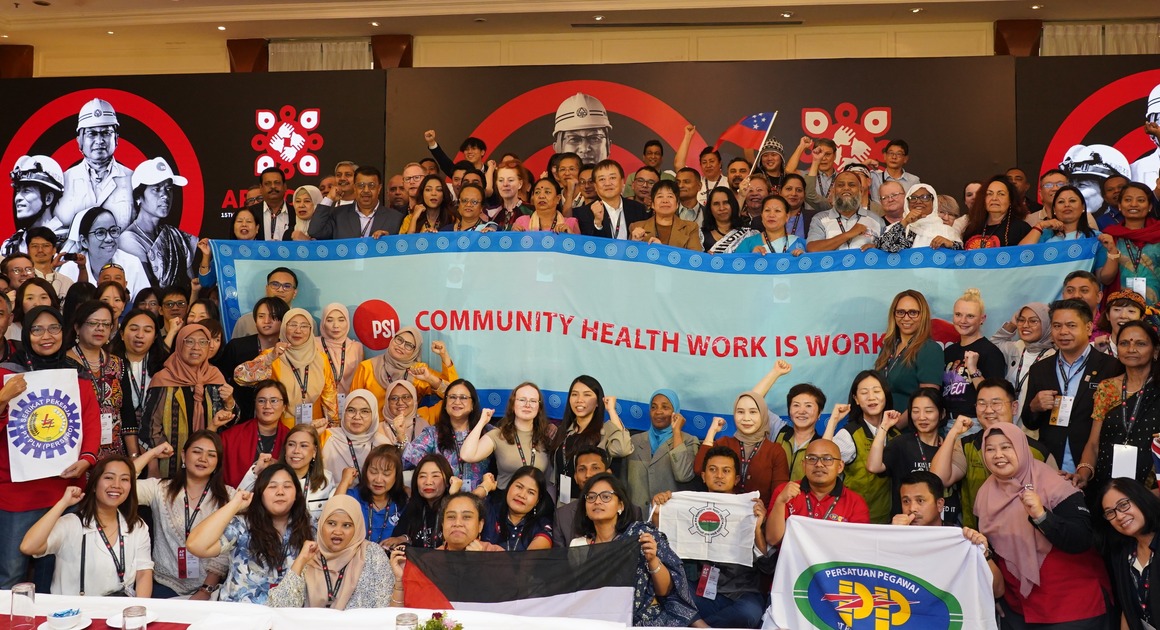Community Health Work is Work! Nepal CHWs win WHO's Public Health Champion Award
 Trade Unionists in solidarity with Nepal's CHWs at APRECON 2025
Trade Unionists in solidarity with Nepal's CHWs at APRECON 2025The World Health Organisation has recognised Nepal's Community Health Workers with the Public Health Champion award for their crucial role in reducing maternal mortality. Despite this prestigious recognition of their impact, these workers remain undervalued and continue to fight for social security, decent wages, and fair compensation for their essential work.

Jyotsna Singh
The Community Health Workers (CHWs) of Nepal have been awarded the WHO South-East Asia Region's (WHO-SEARO) Award for Public Health Champion for their remarkable contributions to healthcare in the country. WHO recognises that these workers have transformed maternal and child health, increased immunisation coverage, promoted nutrition, and managed disease outbreaks effectively, even in Nepal's most challenging geographical and social environments. Their community-based approach has proven particularly valuable in reaching underserved populations that might otherwise have limited access to healthcare services.
The impact of the CHW's work is clearly demonstrated through impressive health statistics. Their efforts have contributed significantly to reducing maternal mortality from 901 per 100,000 live births in 1990 to just 151 in 2021. Their work has brought down under-five mortality from 162 to 28 per 1,000 live births, according to the Nepal Demographic Health Survey 2022. The programme has gained international recognition as a high-impact model that exemplifies sustainable, gender-equitable, and community-led health systems strengthening. This makes it a valuable blueprint for other regions facing similar healthcare challenges, particularly in resource-constrained settings.
However, despite widespread recognition of their work, CHWs – the all-women workforce – are not recognised as employees by the government. In fact, the official name of CHWs is Female Community Health Volunteers (FCHVs), rendering them as volunteers instead of workers. Nepal's CHWs are fighting for their basic rights such as recognition as workers, fair wages, social security and decent work.
Gita Devi Thing President, NEVA

We still lack decent work conditions, fair wages, and social security. Governments must act to ensure we work with dignity, not just recognition
"It is good to receive this recognition from WHO. It shows the world that our work is important and necessary. But what about our daily reality? We still lack decent work conditions, fair wages, and social security. Governments must act to ensure we work with dignity, not just recognition," said Gita Devi Thing, President, Nepal Health Volunteers Association (NEVA).
"Awards make us visible, but visibility without protection means little. We work tirelessly, going house to house to provide preventive and primary care. As WHO has recognised, it is because of our efforts that maternal and under-five mortality has declined in Nepal. The government must also recognise this and ensure that our rights are upheld," said Basanti Maharjan, President, Health Volunteers' Organisation of Nepal (HEVON).
Read WHO SEARO's announcement here.